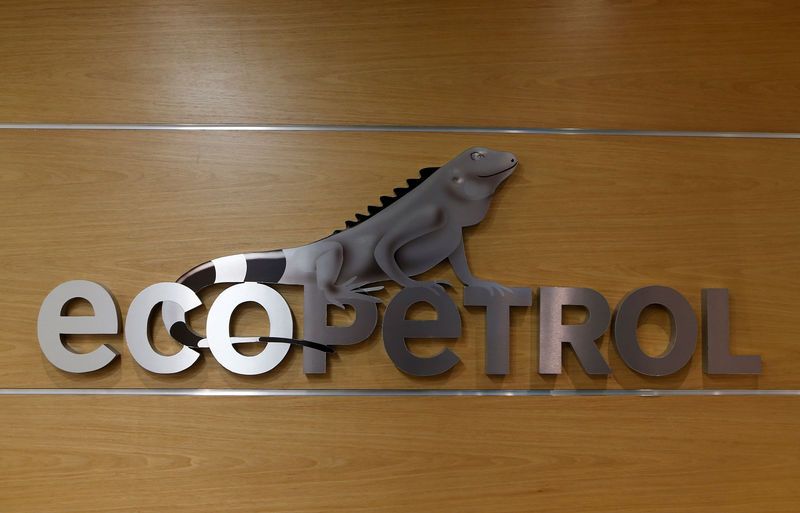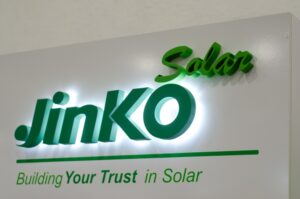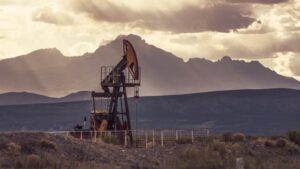
(Argus, 16.Dec.2020) — Colombia’s state-controlled Ecopetrol had been diversifying crude exports with a commitment to quality before the market tailspin of 2020. Now the company is preparing to boost crude imports and compete on its home turf. Commercial and marketing vice president Pedro Manrique shared Ecopetrol’s experience with Argus. Edited highlights follow.
How did Ecopetrol cope with the tumultuous market of 2020?
More than 50pc of our exports went to Asia last year, mainly China, which is a preferential destination for us. We started to see the impact of the pandemic early, before it arrived in the Americas. The Chinese state-owned oil companies and independent refiners started cutting crude purchases. Before this we had been working to position our Castilla Blend — which represents more than 80pc of our exports — in the most important markets. The Chinese said, ‘We need Castilla and we are not going to reduce our purchases.’ So we had no problems in the first quarter of 2020. When the pandemic arrived in the Americas around March, with all the lockdowns, we had to make many operational adjustments. More than 80pc of our workforce started working from home, and we reduced operations to a minimum, but we still had to fulfill our export commitments. It takes 45 days to ship to China, so we had to start planning early. The Asian market requires special logistics. So we had to maintain operations. The problems came in the second quarter, with the pandemic and the price collapse. All producers were asking, what do we do with our barrels? Storage started to fill up because there wasn’t enough demand. Producers started shutting in production, but Ecopetrol did not have to shut in production for lack of market, but rather because prices fell far below our breakeven.
When the pandemic arrived, all products demand in Colombia fell: Gasoline by 70pc, diesel 50pc and jet 90pc. Our refinery throughput went below 50pc. That freed up crude, while storage was full and production was steady. So we went to the international market. We stayed with China, and opened to India and South Korea. In the second quarter, the price impact put stress on all the companies, and companies that could not sell had to simply shut in production. We managed to maintain sales. We had record-low price differentials in 2019. So the challenge was not just placing the barrels but maintaining this progress. When we issued our second quarter report, our differentials remained at one digit. We handled the situation very efficiently.
How has Ecopetrol addressed market concerns about the stability of its crude quality?
More than three years ago, we started addressing this issue in response to market feedback. We produce Castilla Blend from many fields in Colombia. So we made two important decisions. We defined the recipe, as if it were Coca-Cola, to commit a value to our customers on each tanker leaving Coveñas. And we registered the Castilla brand. In the past we sold Castilla to traders, but we didn’t map the molecule to the end-users. Now we are the only sellers of Castilla, and our goal is to reach the end-user. Coveñas has 10mn bl of storage capacity and we are optimizing it. With a terminal that big, we use the tanks with each of the different Castilla components to ensure that each cargo is exactly the same quality.
What steps is Ecopetrol taking to diversify the market for its crude?
We started two years ago to diversify the market. We have been working on the Asian market with a lot of trips to China, India and Singapore to position Castilla and reach the end-users. But we have not neglected the natural US market, where we have clients that have been buying Castilla for more than 20 years. It is important to position Castilla as a baseload feedstock. And we changed our strategy, so that 70pc of sales are done through long-term contracts with end-users. So all of the world’s big refiners are our clients. Only 30pc is sold spot. Neither Mexico, Venezuela, Ecuador nor Brazil have the stability of Colombian crude quality and the reliability.
What kinds of crude is Ecopetrol importing to complement its domestic supply?
We handle 1mn b/d, including equity crude, royalty crude and third-party purchases. The crude goes to our Barrancabermeja and Cartagena refineries and more is exported. We import light crude from the US, usually two WTI cargoes every month, but we have also tried WTL and Bakken. We test 5-10 new grades every year, so we have tried crude from Russia, Canada, West Africa and Brazil. Imports depend on Colombian availability of Caño Limon from Occidental and our South Blend from southern Colombia, which is usually shipped via cabotage from Tumaco to Cartagena. In the last two years, we have started to ship imported crude down the Magdalena river to Barrancabermeja. This has allowed us to increase throughput from a historic 200,000–210,000 b/d to 235,000-240,000 b/d, which has really improved the refinery economics.
Is Ecopetrol still looking for nearshore storage?
We have daily operating storage, strategic storage and commercial storage for crude and products. During the pandemic, when the market was in steep contango, we quickly took advantage of all the storage we had. We never had to test the system like that before. We looked in Panama and Caribbean but it was really costly. We came close but we didn’t need it. For us it was an economic decision. In addition to the operational, strategic and commercial storage, our affiliates have storage, and many of our clients have storage too. We classified the options, from the most economic to the least economic. In our commercial area, we have a paper desk that allowed us to hedge during the worst months. We captured the contango and created additional cash flow. We learned a lot of lessons.
What is the status of the Cartagena refinery interconnection with the original refinery’s crude unit, and upgrades at Barrancabermeja?
The interconnection project at Cartagena was halted, and now we have about a year before the project will be ready to start. This will boost capacity by around 80,000 b/d, but it will require us to import more, because the old unit can only process light crude. We are reviewing what is the best crude to import. The quality of our imports is normally 40-55°API. The Barrancabermeja refinery is medium conversion, so we still produce fuel oil there, in contrast to Cartagena where we have a 45,000 b/d coker. At Barrancabermeja, we are upgrading hydrogen and hydrocracking units to improve fuel quality. We are already delivering diesel of around 10-15ppm sulfur from the refining system, but with gasoline we still have some challenges.
Colombia plans to overhaul the fuel price formula to boost competition in the local market. As a gasoline importer, what does this mean for Ecopetrol?
We are ready to face competition, but it’s a government decision. We can compete with any refiner in the world. Right now prices are based on export parity, so no one will import. The government has to switch the price signal to an index or import parity. We are long on diesel but we import two gasoline cargoes a month or 25,000-30,000 b/d. At the peak of the pandemic, gasoline demand is now nearly the same as before the pandemic. When there is a change in the price signal, we will have to compete like everyone else.
What is your perspective on oil prices in 2021?
At $47-$50/bl, this is a healthy level and there will be a lot of production. The decisions that Opec+ takes will balance the market. I think prices will remain around where they are now. If Brent exceeds $50, it would be very positive for the industry and for Ecopetrol.
Investment is fundamental. The world is still going to need fossil fuels to meet demand. But the investment funds are moving out of oil and gas, so we need to show them we have a good balance between what we need today, and what we will need tomorrow. We have 400MW of solar projects within Ecopetrol. The investors need to see that we have a commitment to the environment, to ESG. In our case we talk about TESG — technology, environment, social and governance.
__________
Pedro Manrique will be one of the speakers at the Argus Crude Live virtual conference taking place Jan. 26-28, 2021.

